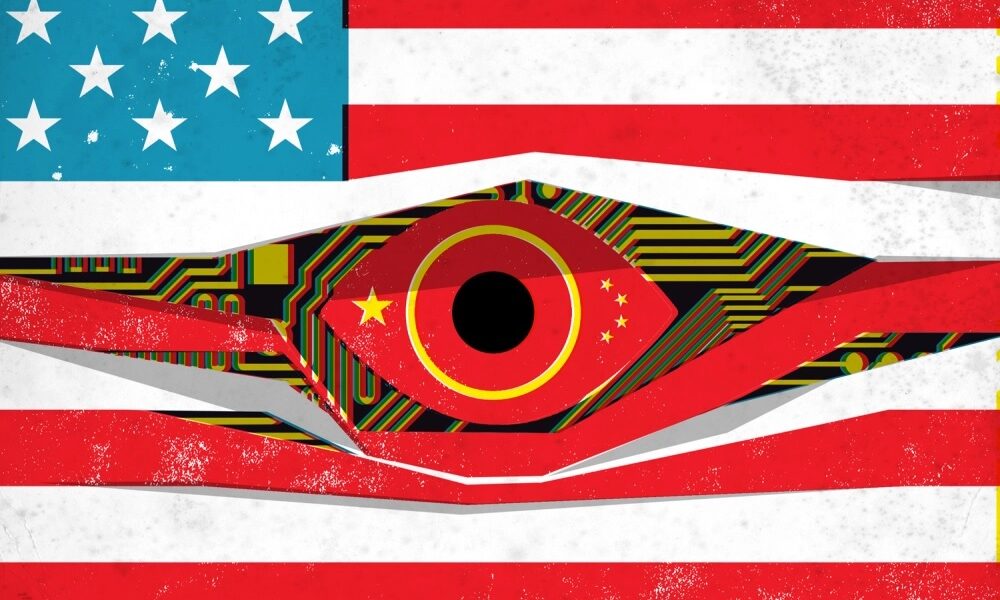China quietly makes inroads into the United States’ neighbourhood through reported surveillance activities in Cuba. As per a report from The Wall Street Journal, China has secured a “secret deal” with Cuba to establish an electronic surveillance centre on the island, strategically positioned around 100 miles (160km) from Florida.
This newly established facility could enable Beijing to intercept electronic communications originating from the southeastern region of the United States, which houses numerous US military bases, and monitor maritime traffic. According to the US government, China has been spying from Cuba for some time and upgraded its intelligence collection facilities there in 2019.
Worryingly for Washington, the US Central Command, responsible for the Middle East, and the US Special Operations Command, overseeing global special forces operations, are headquartered in Tampa. Moreover, the US Navy possesses advanced underwater “acoustic testing ranges” located just off the Florida coast in the Bahamas.
The reported Chinese surveillance station in Cuba potentially aligns with the People’s Liberation Army’s (PLA) “Project 141,” a global endeavour to establish military bases and logistical support facilities in various locations like Gabon, the United Arab Emirates, Djibouti, and Cambodia.
China’s long-term strategy centred around the United States involves expanding its economic and security presence in Latin American countries, thereby extending its influence in the Western Hemisphere. According to data from the World Economic Forum (WEF), trade between China and Latin America, along with the Caribbean, experienced a substantial surge from USD 12 billion to USD 315 billion between 2000 and 2020.
Following the media leaks, the Chinese Foreign Ministry expectedly refuted media reports of China’s spy activities in Cuba. Beijing emphasised that these claims were “unfounded” and clarified that there is no possibility of driving a wedge between China and Cuba, as their relationship remains that of “sincere friends.”
Apart from engaging in surveillance activities, China may also be attempting to divert the US attention in its own neighbourhood, thereby trying to draw Washington’s focus away from Asia.
If media reports are true, in the worst-case scenario, China could potentially establish ports and other infrastructure that could serve as training grounds or bases for hosting military assets. This would enable Beijing to exert its hard power and expand its influence in the US’ immediate sphere of influence.
Cuba and Latin America, due to their strategic positioning and the complex historical context of the Cold War, including the infamous Cuban missile crisis of 1962, offer China a valuable vantage point from which to observe US military activities.
The reported Chinese spy station can enhance the collection of signals intelligence, including intercepting cell phone communications, capturing electronic signatures attached to defence messages, and monitoring computer screens at various military installations.
It is worth noting that this development has come after a suspected Chinese “high-altitude spy balloon” crossed the US in February, adding to growing concerns regarding Chinese espionage activities against Washington.
According to analysts, China’s interest in establishing a surveillance station in Cuba is indicative of two possible trends. First, China's intelligence collection operations are expanding across various domains, encompassing cyber operations, human-source activities, signals collection, and open-source data gathering.
These operations, along with the establishment of overseas “police stations” in different countries to exert pressure on and intimidate Chinese dissidents, form part of a vast Chinese intelligence apparatus aimed at the United States.
Second, China’s involvement in Cuba aligns with its broader geopolitical objectives of expanding its influence and cultivating relationships with governments in Latin America and the Caribbean.
This strategic approach includes garnering support for Chinese economic and ideological ambitions while also securing access to crucial resources, particularly rare materials essential for the energy transition such as lithium and cobalt.
This mirrors China’s activities in African countries, but with the geographical advantage of being closer to the US.
Chinese intelligence activities serve bigger objectives of the Chinese Communist Party. Their primary aim is to advance Chinese security interests encompassing military, diplomatic, and economic domains.
To achieve this, China engages in various tactics such as intellectual property theft, infiltrating universities, and private companies to acquire valuable knowledge, and exploiting the open and collaborative nature of the western countries for their own advantage.
Consequently, a substantial transfer of intellectual wealth is occurring as a result of these activities. Nevertheless, a pressing concern arises regarding the extent of Chinese espionage within the US’ immediate vicinity, which could intensify tensions between Beijing and Washington.
Despite China’s official denial of having a listening post in Cuba, the reported spy facility is widely regarded as a tit-for-tit for alleged US intelligence gathering operations in the South China Sea region.
The reported presence of a Chinese spy station in Cuba, along with its deeper engagements with Latin American countries, represents a significant challenge to the US’ influence in the Western hemisphere.
Lastly, there are speculations that Chinese military may increase its presence in the region to possibly obstruct the US military operations or even launch an attack on the US mainland in case a war in Taiwan breaks out.
Xi Lao is a freelance journalist based in Taiwan.


